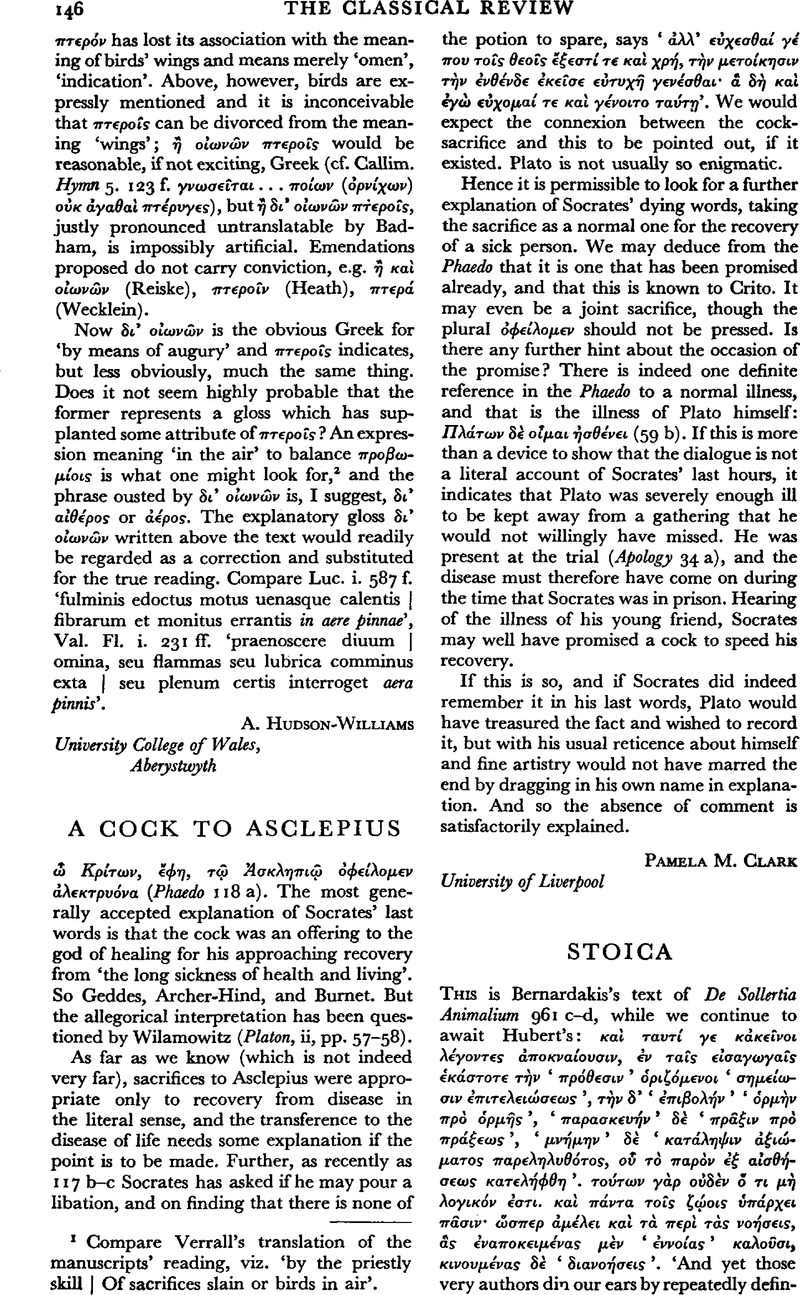No CrossRef data available.
Published online by Cambridge University Press: 13 February 2009

1 Or ‘Elementary Treatises’: Chrysippus may be intended, though this cannot be demonstrated. The word is mistranslated at Mor. 43 f (Loeb).
2 By von Arnim and Adler at least, though this is not Dyroff's fault (see ‘Die Ethik d. alten Stoa’, Berliner Stud. ii, 1897, p. 19, n. 4; p. 271). Both Pohlenz (Berl. Phil. Woch. 1904, col. 937) and Crönert (Gnomon, vi, 1930, P. 142) rightly complain of von Arnim's neglect of the literature of his subject. ⋯πιβουλ⋯, πρ⋯θεσις, and παρασκευ⋯ are discussed by Bonhöffer, , Epiktet und die Stoa, pp. 257–258.Google Scholar
3 The technical significance of σημε⋯⋯ωσις and ⋯πιτελε⋯ωσις, as well as that of ⋯ναπ⋯κειμαι, is not yet recognized in L.S.J.9, probably because they are omitted in the Adler index. Pohlenz's basic reviews of the successive volumes of S.V.F. (Bed. Phil. Woch. 1903, coll. 961 ff.; 1904, coll. 93a ff.; 1905, coll. 1487 ff.) as well as Crönert's review of Adler's Index (Gnomon, vi, 1930, pp. 142 ff., esp. p. 147, n. 1 and 149, n. 5) point out innumerable shortcomings, most of which are ignored by the compilers of L.S.J9. See also Pearson, C.R. xix. 454 ff.
4 But not to Dyroff, locc. citt. in note 2.
5 That is, by sensation we apprehend the proposition ‘Socrates is snub-nosed’; by memory the proposition ‘Socrates was snubnosed’.
6 As at Mor. 410 d, 460 c, 470 a, and often; indeed, this collocation seems particularly appropriate when Plutarch is dealing with the Stoics: cf. 443 a, 450 a, 472 a, 516 f. It is unfortunate that Porphyry (De Abstin. 3. 22, p. 214 Nauck) gives us no substantial help in this passage, except that he reads ⋯ποκειμ⋯νας (and cf. Mor. 1085 a), if that may help to establish ἔννοιαι.
7 I am greatly indebted for several helpful suggestions and references to Mr. F. H. Sandbach and to Professors Harold Cherniss and Benson Mates.